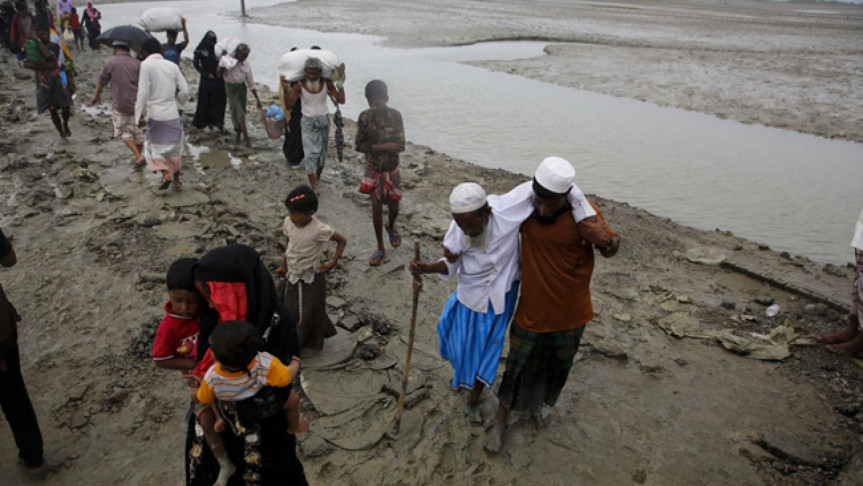Rohingya refugees in Bangladesh may double: UN

The head of the United Nations mission in Bangladesh warned on Friday that the number of Rohingya refugees fleeing ongoing violence in Myanmar — around 400,000 presently — could double in the next few weeks.
The UN agencies were not being able to reach all the refugees owing to the huge influx and were focusing on the 12 main crossing points along the 250-km-long border between Bangladesh and Myanmar, UN Resident Coordinator in Bangladesh Robert Watkins told Efe news.
‘We expect a lot more people from the UN agencies and the NGOs working in this area,’ Watkins said.
He added that the challenge was that the Bangladesh government had restricted the number of humanitarian agencies which could work in the area.
However, given the current influx, Bangladeshi authorities have agreed to revise the cap and authorise additional agencies to work in the area, he added.
According to the UN, 391,000 Rohingya refugees have arrived in Bangladesh since violence broke out in western Myanmar’s Rakhine state on August 25.
The Asia-Pacific spokesperson of UN’s International Organization for Migration, Chris Lom — speaking from Cox’s Bazar in Bangladesh on phone — said there were thousands of Rohingyas waiting for boats to reach Cox’s Bazar and smoke billowing from burned Rohingya villages in Rakhine province in Myanmar could still be seen from Bangladesh.
The UN agencies have also boosted humanitarian assistance in the region and were trying to supply aid to the newly arrived 200,000 refugees who were living in makeshift camps, situated between larger Rohingya settlements of Kutupalong and Balukhali.
The World Health Organisation is also set to begin a vaccination campaign on Saturday for the newly arrived 150,000 children between the age of 6-15 months, to safeguard against some common diseases like measles, polio and rubella, and will distribute emergency medical aid kits, including for Cholera prevention, and 2 million tablets to purify water.
The UNICEF is also distributing Vitamin A supplements to the refugees, out of whom 240,000 are children, including 36,000 who are less than a year old, and 1,100 who are unaccompanied.
There are also 52,000 pregnant and breastfeeding women and the precarious living conditions makes them vulnerable to various diseases.
World Food Programme spokesperson Bettina Luescher said they were also able to distribute food to resettlement camps in Rakhine in Myanmar, which had not received help since August, with the help of the provincial government.

 IANS
IANS




